As you probably know, USB 3.0 is not supported natively by Windows 7. It's for this reason that the Windows 7 installation is not possible by default from a USB 3.0 key.
To avoid this problem, VMware Workstation virtualizes by default an USB 2.0 controller when you want to virtualize Windows 7.
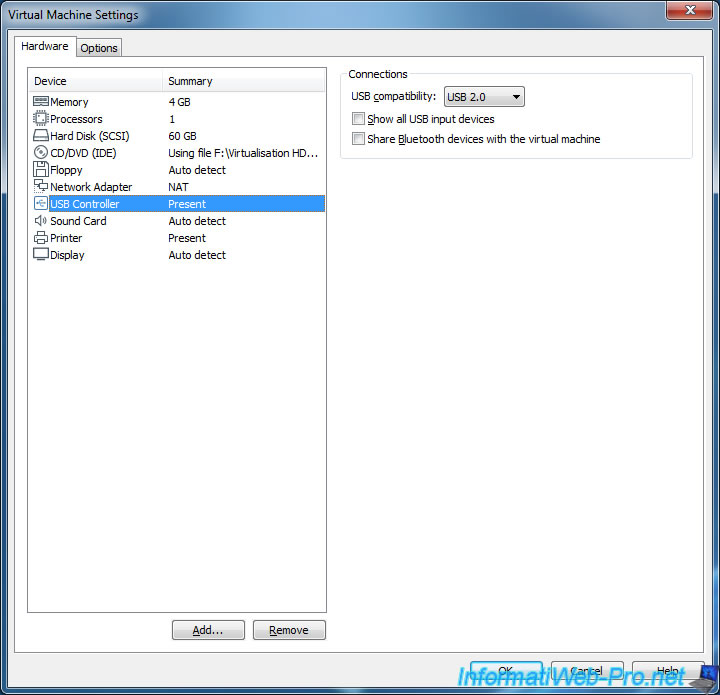
By default, if you open the device manager in a VMware virtual machine with Windows 7 as guest, you will see this :
- USB Root Hub (x2)
- Standard Enhanced PCI to USB Host Controller
- Standard Universal PCI to USB Host Controller
- Generic USB Hub
- USB Composite Device
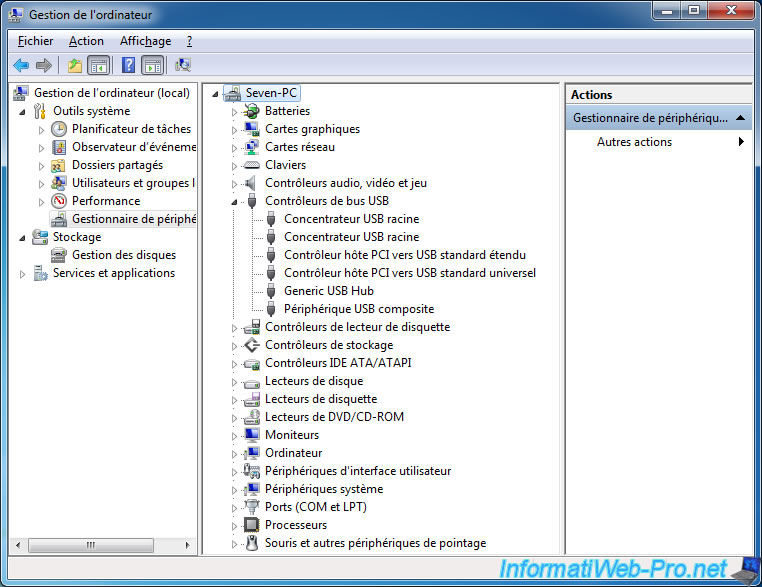
Nevertheless, once Windows 7 is installed, it's possible to benefit from USB 3.0 in the guest OS. Obviously with the installation of the appropriate driver in the guest OS.
To do this, go to the settings of your Windows 7 virtual machine, click on "USB Controller" and select "USB compatibility: USB 3.0".
Once you have selected "USB 3.0", a message will appear with a link that will redirect you to the Intel site : https://www.vmware.com/go/dl_intel_usb3_driver
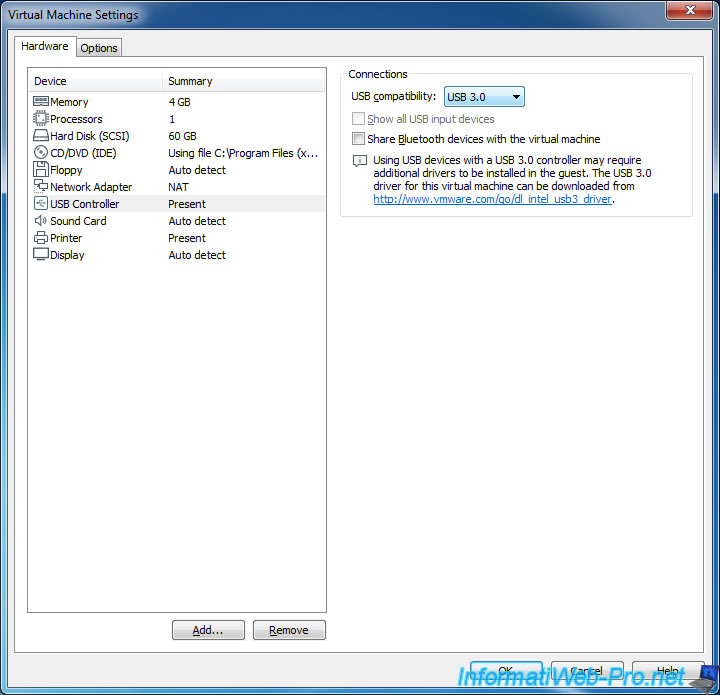
Update : since version 15.5.6 of VMware Workstation, you can use a USB 3.1 controller instead of USB 3.0. However, the procedure for installing the required driver remains the same.
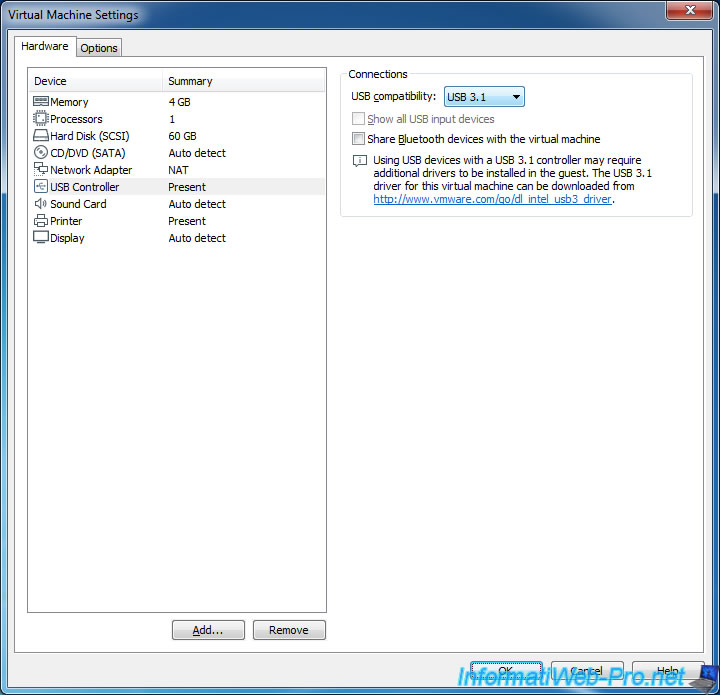
You will arrive on the "Intel® USB 3.0 eXtensible Host Controller Driver for Intel® 8/9/100 Series and Intel® C220/C610 Chipset Family" page of the Intel Download Center.
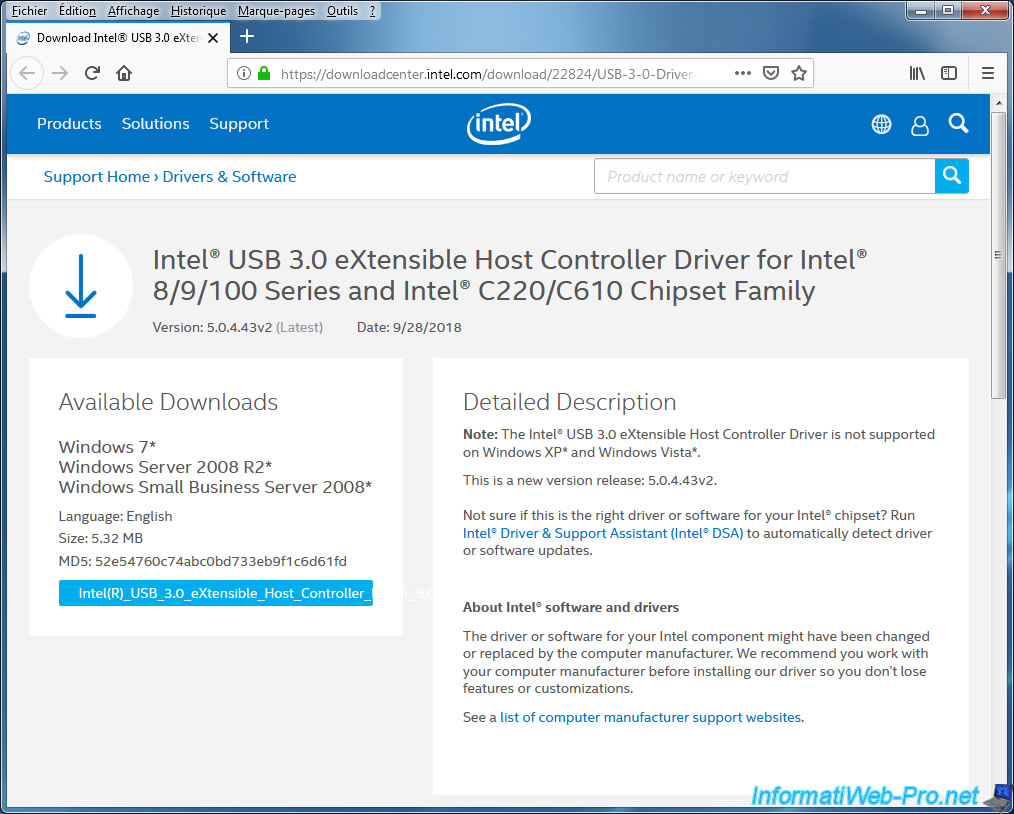
In the guest OS, Windows will tell you that the device driver could not be installed for the USB bus controller.
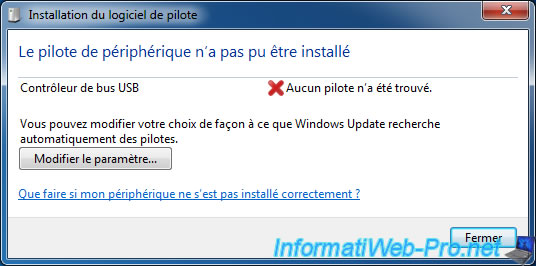
Once the driver is downloaded in the guest OS, unzip the downloaded file and run the "Setup.exe" file.
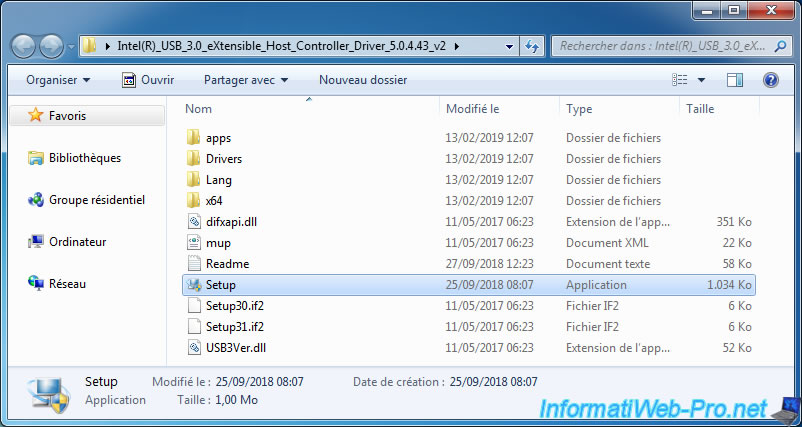
If Windows 7 is not up to date (even if SP 1 is installed), you may receive an error :
The procedure entry point SetDefaultDllDirectories could not be located in the dynamic link library KERNEL32.dll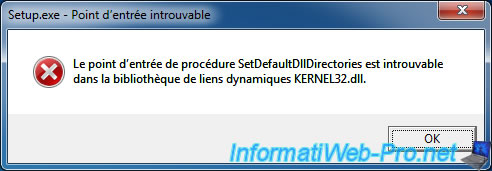
This error is due to the fact that Intel uses new secure features implemented by Microsoft in this dll which belongs to the core (kernel) of Windows.
To update this dll correctly, go to the "Microsoft Security Advisory: Insecure library loading could allow remote code execution" page of the Microsoft site and download the updated KB2533623 referenced on this page for the Windows architecture you are using :
If these links don't work anymore, download this update from the Microsoft Download Center :
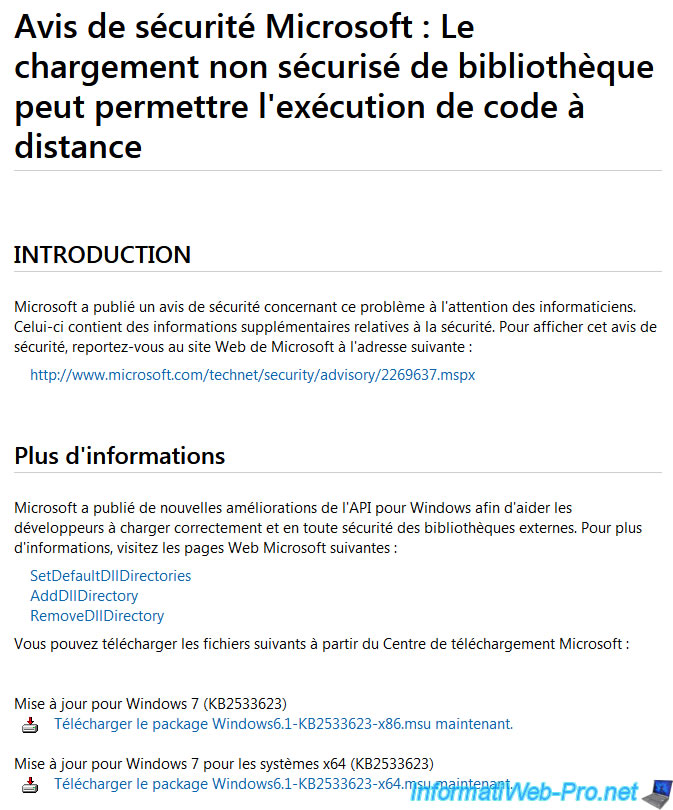
Install the KB2533623 update by simply launching the downloaded "Windows6.1-KB2533623-xxx.msu" file.
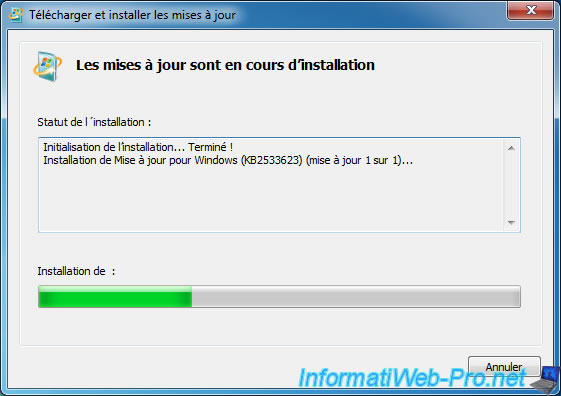
Once the installation is complete, the virtual machine will have to restart.
Click on : Restart now.
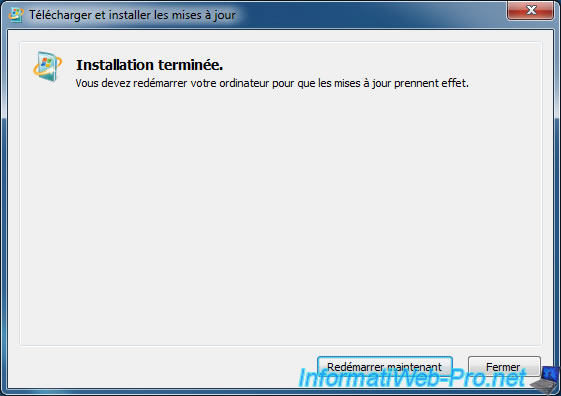
After rebooting, you will be able to install the Intel USB 3.0 driver without any problem.
To do this, run the "Setup.exe" file from the previously downloaded driver.
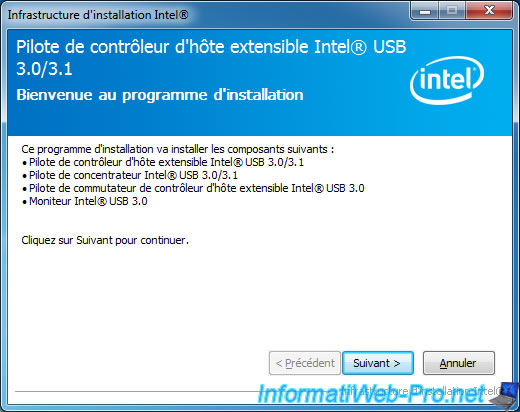
During installation, Windows will tell you that the Intel(R) USB 3.0 Root Hub has been installed.
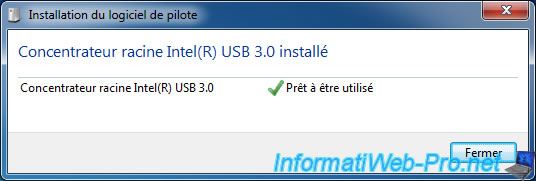
Leave the "Yes, I want to restart my computer now" box checked and click Finish.
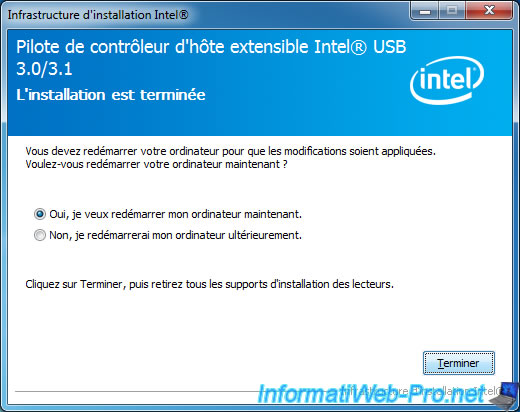
After rebooting, open the device manager.
As you can see, 2 new devices appeared in the Universal Serial Bus controllers :
- Intel(R) USB 3.0 Root Hub
- Intel(R) USB 3.0 eXtensible Host Controller
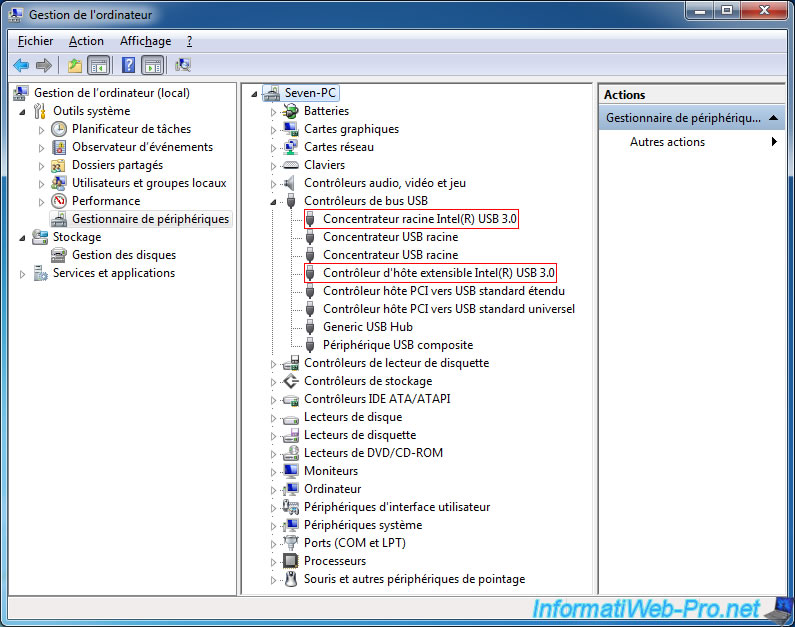
To see also
Comments
Источник: [https://torrent-igruha.org/3551-portal.html]Canal JDB. Problemas con USB 3.1, Win 7 y Ryzen 7 No instala Drivers


